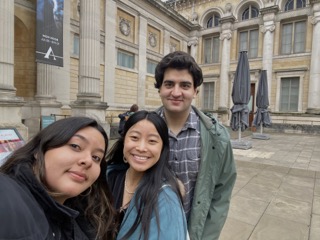
Feeling Guilty, Diversity and Cultural Identity
Countries
Regions
Since my arrival here, at times I have experienced a sense of guilt. I have never struggled with things such as imposter syndrome, but I believe I am now. When I look around, and notice the lack of diversity in my program, I remember that it’s important that people who look like me are also partaking in opportunities like studying abroad. But internally, I fight with the constant doubt, and I tell myself things such as, “why me?” and “Do I deserve this?”. Then I consolidate myself with, “I am just really lucky”. I find myself always having to go back and readjust my thinking, because I know that I’m in the right place, and that I worked hard to find the opportunities that brought me here. It’s a newly found battle that I never imagined I would have to fight, especially with myself. I read a quote recently from Marchu Girma, who is a human rights activist here in London. She says, “it was only in the context of whiteness that I became aware of my blackness and conscious of the underlying racial assumptions that were being made about me, this awareness made me want to change society”. Being a Hispanic woman who is studying abroad, is not commonly seen by people, which always raises questions about my upbringing, and how I made it to London. Although I understand the curiosity, it at times makes me feel so much more different than my other peers. Like Marchu Girma describes her experience when she first migrated to London and went to school in a majority white school, in the absence of being surrounded by my culture and people who look like me and speak the same language, I too became aware of my cultural distinctiveness among my other peers. It wasn’t until I got here that I became aware of how deeply rooted my cultural identity is to me, and how much it means to me. I’m working on the imposter syndrome type feelings that I have been experiencing since my arrival here, but I know that this is all a learning experience. I’m so glad that I get to teach my other peers about my culture and some of my traditions, while I learn about them and their traditions as well. I also made friends with other minority students from different backgrounds, which makes me feel more included, as we share our common experiences and troubles throughout our stay here. Nonetheless, this also opened my eyes to the work that needs to be done to increase the number of minority students who study abroad. Improving one’s global perspective should not be exclusive, and only available to those with more privileged backgrounds. Opportunity accessibility needs to be widespread, to offer ALL students the chance to travel abroad.
